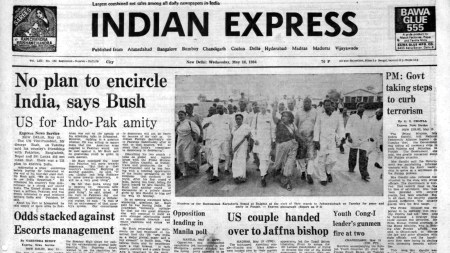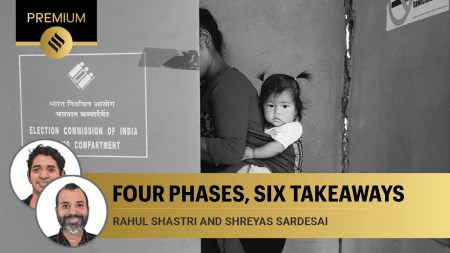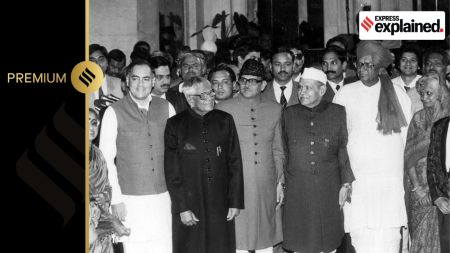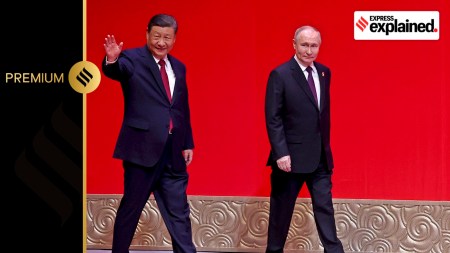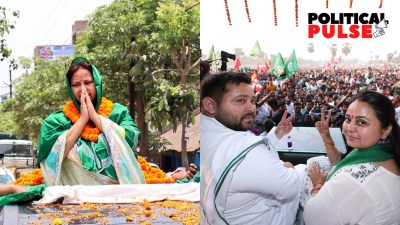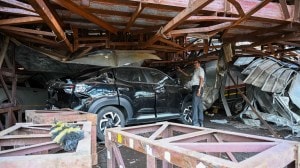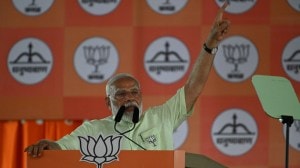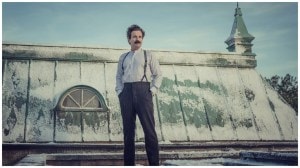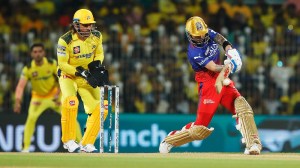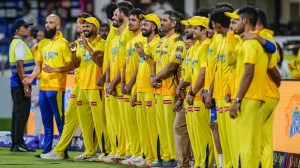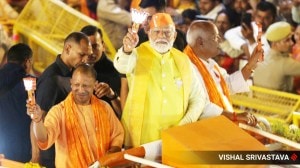- India
- International
On the road with Covid: Auto-rickshaws and bike taxis recover faster, cabs behind
Data show that even as usage of public transportation continues to climb toward pre-Covid levels, modes such as bike taxis and auto-rickshaws have recovered faster than cabs.
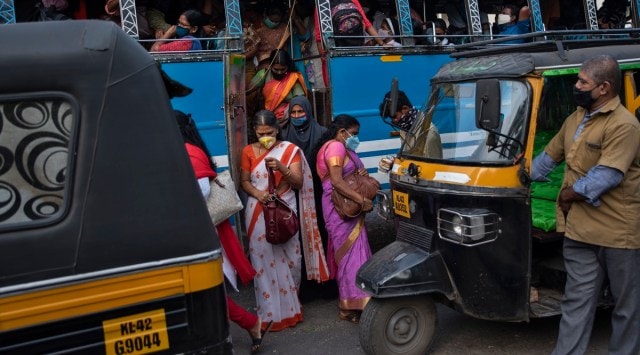 People wearing masks as a precaution against the coronavirus alight from a bus in Kochi (AP Photo/R S Iyer)
People wearing masks as a precaution against the coronavirus alight from a bus in Kochi (AP Photo/R S Iyer)There was a time when people using e-mobility apps preferred cabs to bike taxis and autos. It seems to be the other way now, according to data available on transportation in the time of Covid.
They show that even as usage of public transportation continues to climb toward pre-Covid levels, modes such as bike taxis and auto-rickshaws have recovered faster than cabs. Stakeholders say this is mainly driven by the perception that passengers have a lower risk of contracting the virus in bike taxis and auto-rickshaws than inside cabs.
“With fewer physical touchpoints, better air circulation and social distancing measures in place, autos are largely being perceived as comparatively safer modes of transport,” taxi-hailing firm Uber said. In terms of gross bookings, it said, the number of auto-rickshaw rides on its platform have exceeded pre-Covid levels in places like Mumbai, Delhi, Hyderabad, Mysore, Bhubaneswar, Jaipur, Nagpur, Indore, Nashik and Kochi.
According to data provided by Internet sector consultancy firm RedSeer, cabs, bike taxis and auto-rickshaws booked through online platforms like Uber, Ola, Rapido, etc., have recovered to 54 per cent, 83 per cent and 62 per cent of pre-Covid levels, respectively.
In January 2021, the data show, cab bookings on these platforms clocked 36 million rides compared with 66 million in the same month last year. However, auto-rickshaw bookings recorded 23 million rides against 28 million last year, and
bike taxis 12 million rides against 19 million.

With resumption of workplaces and offices, another key trend emerging with regard to mobility is that recovery has been faster in metros compared with non-metro cities. For all modes of transport on e-mobility platforms, Kolkata witnessed the highest recovery so far at more than 80 per cent, while Mumbai and Delhi are second with over 50 per cent bounce-back.
Notably, the share of the top seven cities, which was 72 per cent in January 2020, has increased to 75 per cent in January 2021 in terms of number of rides. The total number of rides booked on e-mobility platforms in January this year was 71 million, 37 per cent lower than 113 million booked in the same month last year.
“As cities start opening up and people begin moving again, we are witnessing renewed rider demand which augurs well for drivers because it means we can continue to create livelihood opportunities for them so they can support their families,” Prabhjeet Singh, president, Uber India and South Asia, said.
Overall public transportation, too, appears to be inching closer to pre-pandemic levels. Google’s Mobility Index shows that the number of visits to public transportation hubs like bus stations, underground and train stations in India was 7 per cent for February 23, when compared to the median value for the corresponding day of the week during the five-week period of January 3-February 6, 2020.
However, studies have also suggested a substantial shift in preference for private transport. A “perception study” conducted last year by The Energy and Resources Institute (TERI) pointed out that a decrease has been reported in the usage of bus (4 per cent) and Metro (9 per cent) services, in addition to shared mobility modes. “People may try to shift from public and shared transport services due to higher perceived risks, leading to increased use of private modes of travel,” the study noted.
May 18: Latest News
- 01
- 02
- 03
- 04
- 05



